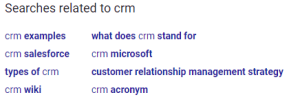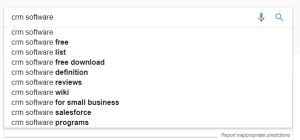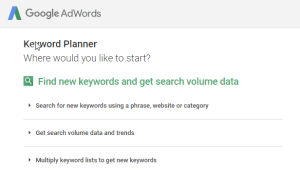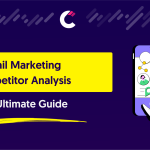
Competitive Intelligence for Business
Competitive intelligence (CI) is a term you may have come across before. Like many industry buzzwords, it isn’t immediately apparent what CI is and how it can be useful to your business. But don’t worry, because we’re going to explain the ins, outs, pros, and cons of CI.
What is competitive intelligence?
Competitive intelligence is a way of collecting actionable information on your business’ competitive environment. In other words, it’s all of the market research and competitor research that you do to determine how lucrative a particular market is, your sales and marketing strategy, and what other businesses you are competing against. It’s a way for you to predict and prepare for particular business challenges and for you to understand what’s happening in your industry.
How is competitive intelligence useful?
Doing a bit of CI is helpful for your business in a great many ways. Your business does not exist in a bubble. There are a whole host of external factors that can affect your business daily. Competitive intelligence is one way to anticipate those factors. Of course, once you know about something that could impact your business, you can monitor it and develop plans to alleviate its effects if needed.
Competitive Intelligence Software
How you go about doing CI can vary depending on your resources and business size. Some companies can dedicate an entire team to undertaking CI while some smaller businesses and start-ups might have one person or even the founder going it alone. In any case, there is a whole host of competitive intelligence software now available, which can help speed up the process.
Competitive intelligence works by gathering publicly available information on other companies in the industry. That means you won’t need to go rifling through a competitor’s filing cabinet in the dead of night. Everything you need for your CI is out there, in the world, waiting for you to find it. It can include legal information, marketing materials, and company documentation.
Finding it can be a hard part. Of course, you can have a quick Google as a start to your CI activity. However, if you wish to delve deeper, then you’re going to have to use some other technology to help you out.
Firstly, you’ll need to identify your competitors. We’ve compiled a handy guide (How to identify who your competitors are) to help you with this. Once you know your competition, then you can begin researching their operations, sales, and marketing.
Depending on how many resources you can dedicate to your CI, you might wish to rank your competitors so you can dedicate your time to finding out the most about the companies which pose the greatest threat. How you do this is largely up to you and your business objectives. However, one way in which you can do it is by looking at their search engine rankings and SEO. This is especially important if you’re a large online company. Moz offers a free 30-day trial that gives you information on the search metrics of any company that you visit via the MozBar Chrome plugin.
Apart from determining search rankings and SEO, competitive intelligence can also involve you looking at a competitor’s stock marketing performance, marketing materials, patent requests, and research papers. What you look at and prioritize again depends on your own business’ needs and objectives.
How to use CI for your business?
All the information you gather shouldn’t then be left to gather dust on an office bookshelf somewhere. It should be reviewed and used often in your strategic planning. Looking at how your competitors do stuff can be great inspiration for your efforts – or at least a starting point. Researching a competitor’s keywords, for example, can help you compile a diverse and effective keyword strategy.
CI is a powerful tool when used correctly. It doesn’t take much time to undertake, but by knowing the competitive environment around you, you can better prepare for the future. Even if you do a little bit of CI, the understanding you’ll obtain from it will serve you for many years to come.G














